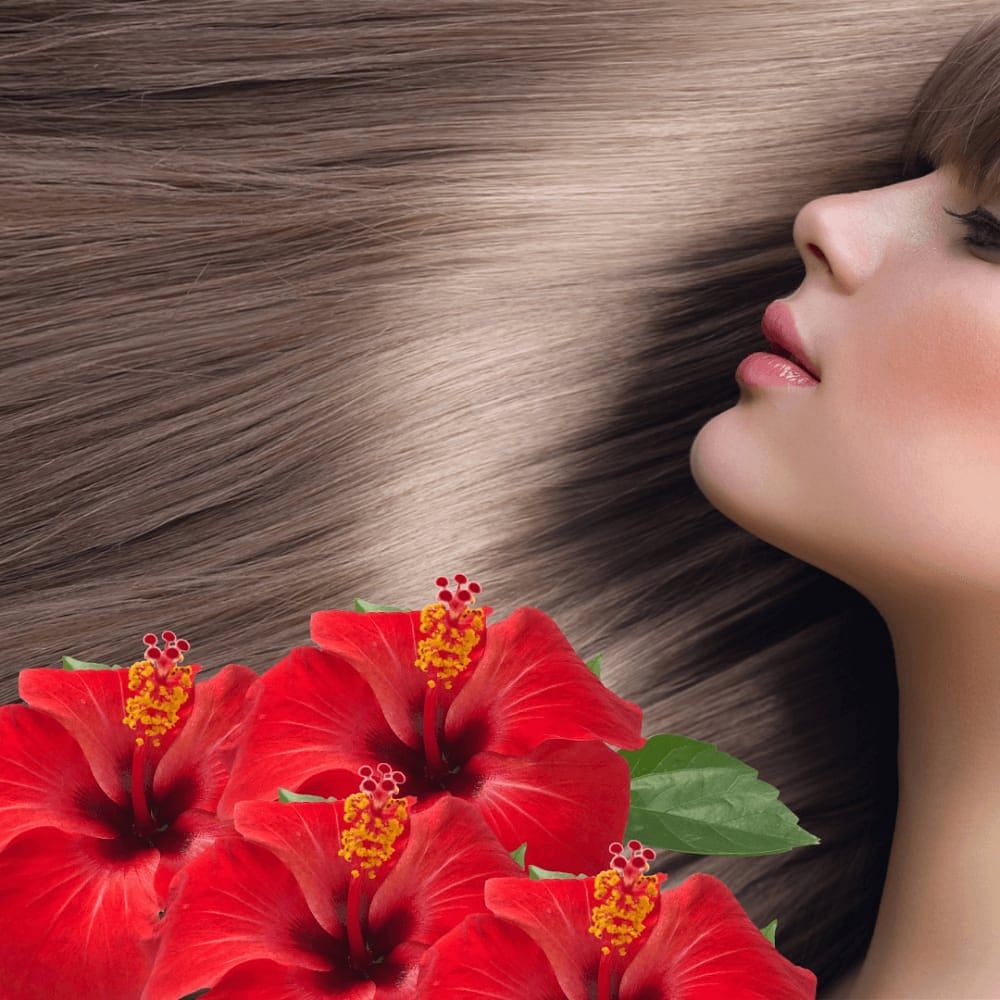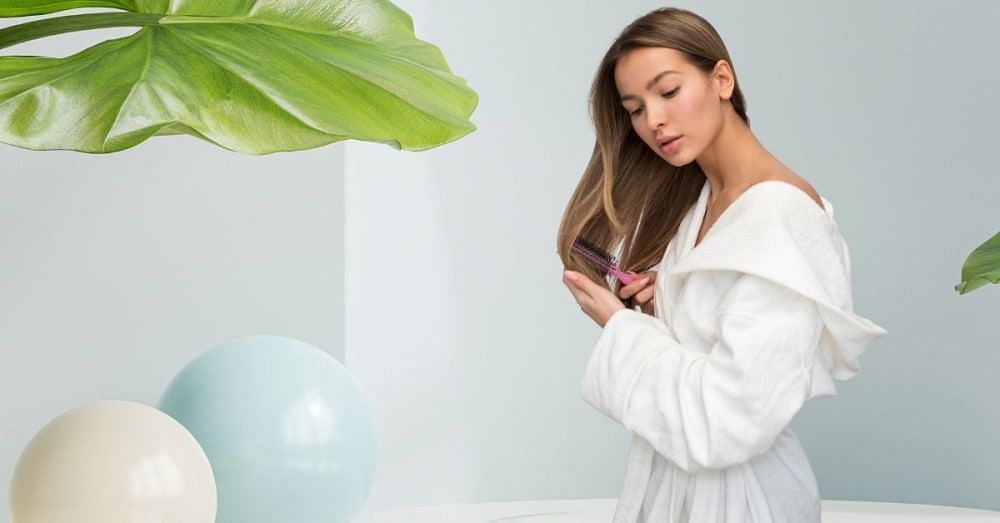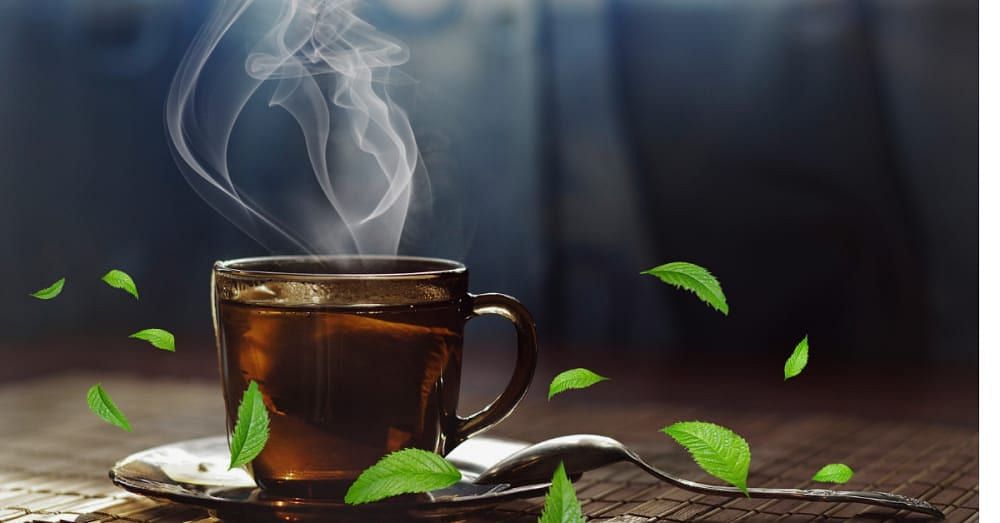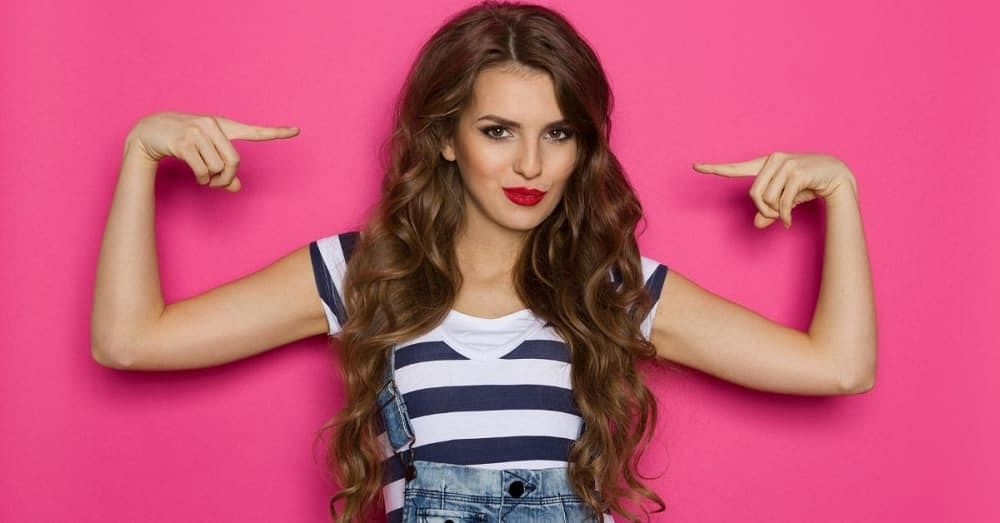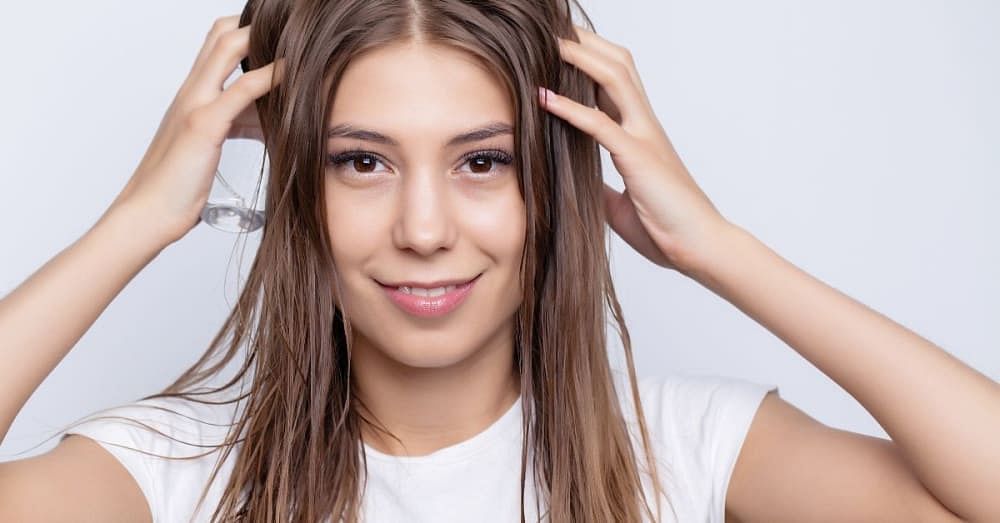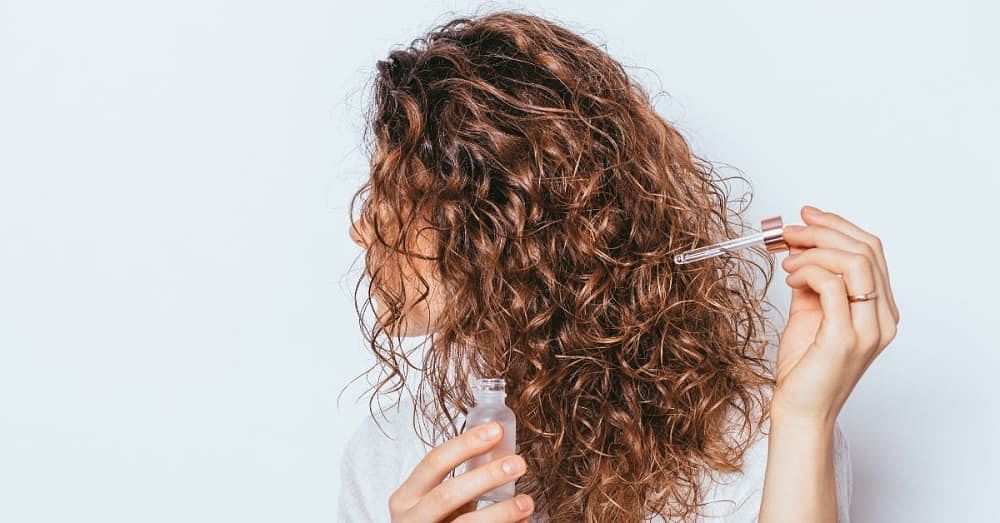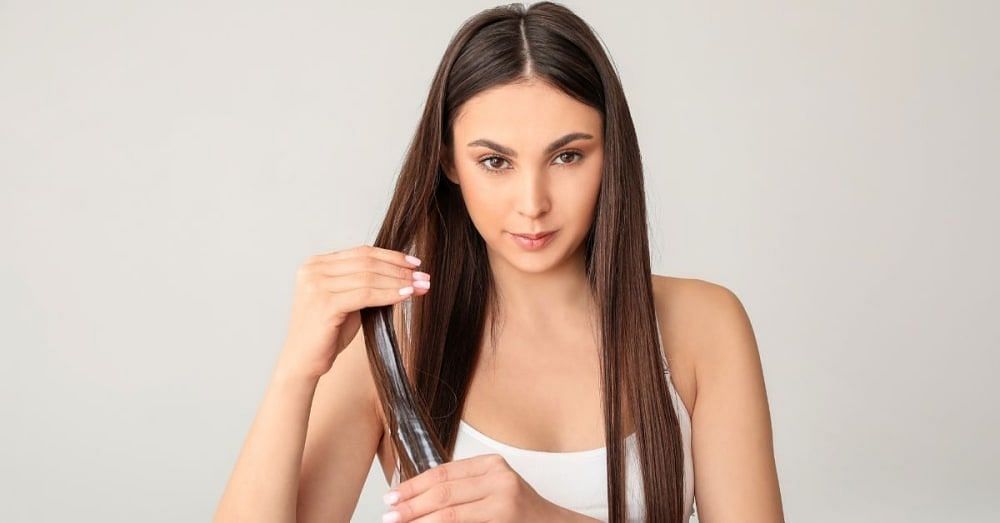Hibiscus is a traditional medicinal plant commonly used in herbal teas and food flavouring agents in many countries. All parts of the hibiscus plant, including its stem, roots, leaves, and flowers, have medicinal properties. They are also used in many cosmetic products.
Hibiscus contains an activating agent that is beneficial for hair growth. It can be used as an alternative to medicinal drugs to treat hair loss at home because the plant has no side effects.
Is hibiscus for hair good? This blog tells you about the various hibiscus benefits for hair.
Does Hibiscus Regrow Hair?
Some instances have reported that hibiscus might be helpful in regrowth. However, most of the research has been conducted on animals. Also, as per a study in 2003, the leaf extract of hibiscus positively impacted hair follicle health and hair length in lab rats. However, more research is needed for a conclusion regarding the regrowth of human hair.
Is Hibiscus Leaves Good for Hair?
Yes, hibiscus leaves are beneficial for hair growth. A study suggests that hibiscus leaf extract stimulates hair follicles and helps promote hair growth. Also, hibiscus leaves contain bioactive compounds like tannins, alkaloids, and flavonoids, which are beneficial for hair.
According to research, medicinal plants containing flavonoids and other biochemical compounds help reduce hair fall and promote hair growth. So, hibiscus leaves extract is good for hair.
Moreover, according to Ayurveda, hibiscus leaf extracts are beneficial for hair because it balances the pitta dosha. The pitta dosha is responsible for metabolic activity in the body. An imbalance of pitta dosha leads to excess heat accumulation in the body. It damages hair and causes hair thinning and premature greying of hair.
Benefits of Hibiscus for Hair
Hibiscus leaves, flower, and stem extracts can be mixed with a carrier oil like coconut or almond oil to reduce hair fall, promote hair growth, and prevent premature greying of hair. Several benefits of hibiscus for hair have been discussed below.
1. Hibiscus for Hair Growth
Does hibiscus help in hair growth? One of the most potent benefits of hibiscus is hair growth. Hibiscus is rich in antioxidants like vitamin C, flavonoids, and amino acids that promote hair growth. According to research, less intake of amino acids in the body can reduce hair growth. Hairs are made up of a protein called keratin, produced by the synthesis of several amino acids. Therefore, amino acids are essential for hair growth. As hibiscus leaves are rich in amino acids, they strengthen hair strands and make them longer. Also, an animal study suggests that regular use of petroleum extract of hibiscus leaves can increase hair growth significantly.
2. Hibiscus for Hair Fall
Hibiscus plant is also beneficial in reducing hair fall. It is beneficial in treating alopecia (extreme hair fall that leads to baldness). As per Ayurveda, one of the major causes of hair fall is hormonal imbalance. It can happen when the doshas get aggravated, and the body starts producing excess heat. Hibiscus balances the pitta dosha and calms the body, which helps reduce hair fall.
3. Provides Deep Conditioning
Another significant benefit of hibiscus for hair is that it nourishes the hair and locks moisture in. This prevents hair damage due to pollution and excessive use of heating tools and chemicals for colouring hair.
4. Hibiscus for Hair Breakage
You can also use hibiscus to reduce hair breakage. According to research, hibiscus contains mucilage fibre that adds elasticity to hair strands and reduces split ends and hair breakage. Hibiscus also contains alpha-hydroxy acids (AHAs), amino acids, and ascorbic acid (vitamin C) that help regenerate hair structure and repair damage. These compounds also rehydrate keratin which helps prevent thinning of hair.
5. Hibiscus for Dandruff
Hibiscus juice or oil also helps reduce dandruff. According to research, hibiscus contains antioxidants like vitamins A and C and alpha hydroxy acids that gently exfoliate and nourish the scalp. One of the major causes of dandruff is excess sebum production on the scalp. Hibiscus has astringent properties that help regulate oil production on the scalp and thus help reduce dandruff.
6. Hibiscus for Grey Hair
Oxidative stress is the most common reason for premature greying of hair, also called premature canities. According to research, oxidative stress due to UV rays or psychological, emotional or inflammatory stress makes the hair follicle ageing process faster by damaging the hair follicle. Antioxidants can control high oxidative stress levels or free radicals. Hibiscus contains vitamin C, a powerful antioxidant that fights free radicals and reduces oxidative stress. Therefore, it helps prevent premature greying of hair.
7. Hibiscus for hair strengthening
The amino acids in hibiscus strengthen hair roots. It provides keratin protein to hair and improves hair texture.
8. Prevents Scalp Buildup
AHAs present in hibiscus gently exfoliate the outer layer of skin. When applied to hair, hibiscus exfoliates the scalp and removes dirt, thus preventing scalp buildup. It reduces itching, inflammation and scalp infections. Therefore, hibiscus leaves are good for a healthy scalp. Exfoliation also stimulates hair follicles that promote hair growth and strengthen hair.
9. Hibiscus for hair volume
Hair thinning or hair loss can decrease hair volume. Also, oily scalp and product buildup can make hair look flat. Since hibiscus helps increase hair growth, controls oil production on the scalp and prevents hair thinning, hair looks voluminous.
10. Hibiscus for hair shine
Hibiscus flower petals condition hair. It has emollient properties, which means it locks moisture in hair for long. This makes hair shiny and silky.
11. Hibiscus for curly hair
Hibiscus leaves are also beneficial for curly and wavy hair. The mucilage fibre present in hibiscus helps repair hair strands and adds elasticity and volume to hair. So, it gives defined and bouncy curls.
How to Use Hibiscus for Hair?
Here are different ways in which you can use hibiscus to manage various hair problems:
1. Hibiscus and Aloe Vera for Hair Mask
You can use hibiscus with aloe vera to calm your scalp and prevent itching. It also moisturises your hair. A hibiscus and aloe vera hair mask works well to condition dry and frizzy hair. It also helps reduce split ends. You can blend a handful of hibiscus leaves and petals to make a paste. Add a tablespoon of aloe vera gel to the paste. Apply the hair mask from the hair roots to the ends and leave it on for half an hour.
2. Hibiscus for Hair Oil
Hibiscus hair oil is best for hair growth. You can easily make hibiscus hair oil at home. Take an adequate quantity of coconut oil in a pan and add some hibiscus petals and leaves. Boil the oil for 5-10 minutes till it turns brown. Let it cool down, and then strain it into a bottle. Apply the oil to your scalp for half an hour before shampooing.
3. Hibiscus Amla Hair Pack
You can apply a hibiscus amla hair pack to the scalp for shinier and voluminous hair. Make a paste of hibiscus leaves and petals. Add 1-2 tablespoons of amla powder, depending on your hair length. Apply the hair pack and keep it for 15-20 minutes. Then, wash it with a gentle shampoo.
How to Use Hibiscus Leaves for Hair?
Hibiscus leaves not only promote hair growth but also add shine to hair. Here is how to use hibiscus leaves for hair.
1. Henna-hibiscus Hair Pack to Prevent Premature Greying
You can make a henna and hibiscus hair pack to make your hair colour darker by a shade and prevent premature greying of hair. According to research, hibiscus leaves contain a reddish pigment called lawsone, which imparts colour to hair strands.
To make the hair pack, take a few hibiscus leaves and grind them to make a paste. Mix the paste with a sufficient quantity of henna powder to make the hair mask. Leave it for 20-30 minutes, and get darker and shinier hair.
2. Hibiscus and Fenugreek Anti-dandruff Hair Mask
Another important hibiscus leaves benefit for hair is that it reduces dandruff. For additional benefits, you can add a paste of fenugreek seeds, as both hibiscus and fenugreek seeds have antibacterial and anti-inflammatory properties. Soak the fenugreek seeds overnight and grind them to make a smooth paste. Add hibiscus leaves paste and apply to your hair. Leave it for 15-20 minutes. Wash your hair with a gentle shampoo afterwards.
3. Hibiscus Hair Shampoo to Avoid Buildup
You can make natural hibiscus hair shampoo at home to gently cleanse the scalp and remove buildup. To make hibiscus shampoo, you need a handful of hibiscus petals. Take some hibiscus leaves and double the number of petals, and boil both in water for 5-7 minutes. Once the water cools down, add a spoonful of gram flour to the bowl. Mix well and pour into a bottle. You can use this shampoo once a week to cleanse your scalp. Use the batch within two weeks.
What Are the Side Effects of Hibiscus?
Hibiscus has several medicinal properties and has rare side effects. However, there are a few cases in which using hibiscus can be harmful. Some of the side effects of hibiscus are discussed below.
1. During Pregnancy
Pregnant and breastfeeding women are often told to avoid having hibiscus because it might bring about menstruation. This can be harmful to pregnant women as it might cause miscarriage. However, there is no scientific evidence to confirm this theory.
2. Low Blood Pressure
Hibiscus tea is also beneficial in regulating blood pressure. According to research, hibiscus leaves have antihypertensive properties. Drinking hibiscus tea can reduce blood pressure. Therefore, people with low blood pressure should avoid using hibiscus.
3. Low Blood Sugar
According to research, hibiscus contains antioxidants like vitamins A and C that reduce oxidative stress and help regulate blood sugar levels. Hibiscus can also be harmful to people with low blood sugar levels as it can further decrease blood sugar levels. You should also avoid drinking hibiscus tea before surgery, as it can cause a drop in sugar levels.
Summing Up on Hibiscus for Hair
Hibiscus is a medicinal plant with antioxidant, antimicrobial, and anti-inflammatory properties. These properties not only boost overall health but also reduce skin and hair problems. Therefore, hibiscus is commonly used in hair oils, shampoos and conditioners. Its leaves contain bioactive compounds like alkaloids and flavonoids, which promote hair growth.
The amino acids in hibiscus leaves increase the production of keratin, the hair protein which makes hair stronger. Hibiscus flower extracts have deep moisturising properties that condition dry and frizzy hair. They make hair shiny and soft.
You can use hibiscus hair oils available in the market or make hibiscus hair oil at home. Mix it with carrier oil for topical application on the scalp.
FAQs
Which Colour Hibiscus is Good for Hair?
The bright red-coloured hibiscus for hair is good. It is rich in amino acids that stimulate the hair follicles and strengthen hair roots. The crimson-coloured red hibiscus petals can also temporarily give a beautiful shade to your hair.
Does Hibiscus Change Hair Colour?
Yes, hibiscus has colouring properties that can change hair colour. It is widely used in herbal hair colours available in the market. Aqueous extracts of hibiscus leaves and flowers can be used along with Henna to dye grey hair temporarily.
Which Part of the Hibiscus is Good for Hair?
All parts of the hibiscus, its leaves, flowers and stem, are good for the hair. The leaf extracts are more potent for hair growth, and the flowers are good for repairing damaged hair as they have conditioning properties.
Can I Leave Hibiscus Tea in My Hair?
There is no harm in leaving hibiscus tea in your hair. However, it is better to use hibiscus tea if you have dark hair because hibiscus has colour-changing properties, so leaving the tea in your hair might change your hair colour.
Can We Apply Hibiscus to Hair Daily?
A1. No. The recommended use of hibiscus for hair growth is recommended twice or thrice a week. It is a great conditioner and shampoo for hair health.
Does Hibiscus Turn Your Hair Red?
A2. The use of Hibiscus for hair will naturally tone your hair colour to a beautiful cherry red with a deep shine.
Does Hibiscus Make Hair Black?
A3. As per folklore, the hibiscus dried flower, when heated and left in the oil, the oil is said to blacken hair. It also prevents hair greying.
Can Hibiscus Reverse Grey Hair?
A4. The Hibiscus flower contains iron, Vitamin A, and Vitamin C. A paste of the dried flowers, along with any oil, is said to manage grey hair by blackening the hair.
Can We Apply Hibiscus Paste on Oiled Hair?
A5. For an oily scalp and dandruff, Hibiscus acts by reducing oil secretion. It also manages dandruff and the itchiness of the scalp. It acts as a natural astringent and maintains the PH balance of your scalp.

